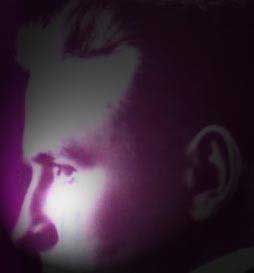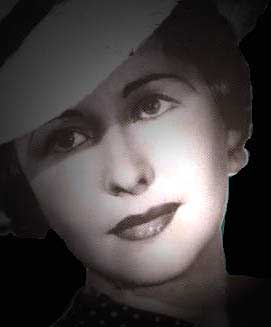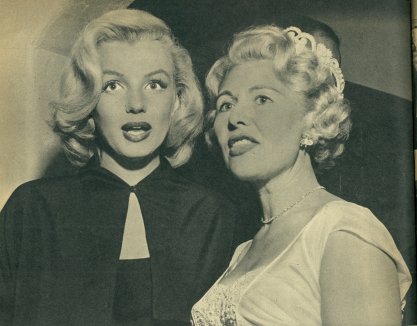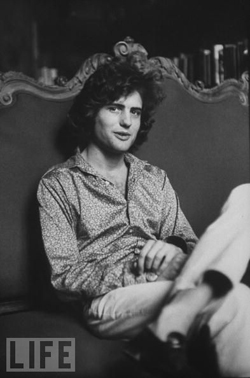
|
|
As every writer knows, the best dramas have a back-story, a ghost lurking in the past – a secret, perhaps, that haunts the present. This is the heart of story-structure, especially if you’re a mystery writer, and my biography is no exception. Here’s my back-story: Five years before I was born, on the Winter Solstice, December 21, 1940, my mother’s lover, the author F. Scott Fitzgerald, jolted to his feet from a green armchair in her Hollywood apartment as they were listening to Beethoven’s Third Symphony on a scratchy gramophone; he reached for the marble mantelpiece of her fireplace, a last attempt to save himself, then collapsed dead on the living room floor of a massive heart attack.
Scott was forty-four years old and my mother, a pretty young Hollywood newspaper columnist by the name of Sheilah Graham, had been his girl in a tumultuous relationship for three and a half years. She had left school at the age of fourteen and Scott had taken it upon himself to educate her in his fancifully named F. Scott Fitzgerald College of One. This was the sober Scott – the Good Brownie, as he liked to say, the most charming man imaginable. Drunk, he had tried to kill her on several occasions, once as they wrestled together over a gun, a very Bad Brownie indeed. Now she refused to believe that he was dead, even later when the ambulance came and a fireman stood over the body and shook his head.
Though my mother lived another forty-eight years, she never entirely got over Scott’s death. I was born in 1945 and, being a selfish woman, she decided that I must become a writer to replace the writer she had lost. One of my first memories is sitting with her in our Beverly Hills home with the encyclopedia open in her lap to Fitzgerald, Francis Scott Key, and listening to her tell me about this man that she had loved. Of course, when she had known Scott, he had been a great failure. His books were out of print, he was deeply in debt. His wife Zelda was in a mental institution back East, and his health had been ruined by years of alcoholism. He died a forgotten man, yet now – wasn’t it strange! – he was considered to be one of the greats. Millions of copies of his books sold every year. I grew up in the shadow of this contradiction, both the glory of what it meant to be a writer, and the terrible price it often entailed. Somehow, despite the cautionary tale of Scott Fitzgerald – and despite my mother’s pushy ambitions on my behalf – I always wanted to be a writer, from as long back as I can remember. It seemed to me the most wonderful thing in the world.
I look back now with some astonishment to find myself the author of eleven books. It amazes me, all those words. Each book a little island of many hopes and disappointments, endlessly trying to get it right. In an effort to support my family, I've also ghost written a major mystery series, eight novels for a TV celebrity I'm not encouraged to name. In recent years, I've done a good deal of teaching as well, hoping to pass along what I’ve learned – creative writing seminars in America and English language classes in such places as China, Egypt, Ecuador, and Vietnam. I grew up in Hollywood in the palmy 1950s, when there were fins on Cadillacs and you had to be careful to be patriotic or the blacklist would get you and your career would be over fast. Movie stars were pretty much everywhere back then, no big deal. And writers galore, because you could make more money in Hollywood than you ever could make with a book. Wisely, when I was a teenager, my mother sent me East to school – the Putney School in Vermont, a progressive kind of place where we called our teachers by their first names, and ran a dairy farm, and marched for civil rights.
A summer trip to the Soviet Union after my Sophomore year, and I wrote my first book, "Journey Behind the Iron Curtain," which was published by G.P. Putnam's in 1963 when I was 17. Later I attended Columbia College, joining the memorable class of 1967 that was eventually to shut down the university. From the sex, drugs, and revolution of that time, I put together a first novel, "The Magic Garden of Stanley Sweetheart," published by Crown in 1969 and made into an MGM movie that introduced an eighteen year old actor, Don Johnson. The movie bore little resemblance to my novel and it was at this point that I took a fifteen year break from writing to study music and "find myself," as the saying went. In 1985, while living with my wife, Gail, and our three children in Hawaii, I began writing a series of satirical mysteries set in the Los Angeles of my childhood: "The Left-Handed Policeman," Crown, 1986; "Nostalgia Kills," Crown, 1988; "Lady Left," Crown, 1990; and "Rich Kids," Birchlane, 1992. I was living in Greece, on the island of Crete, when my mother died in 1988 at the age of 84. I returned to America and tackled the story of her life, with her romance with Scott Fitzgerald and the many details she had left out of her own autobiography, the 1958 bestseller, "Beloved Infidel." My book, "Intimate Lies," was brought out by HarperCollins in 1995, and I think it's perhaps the best writing I've done so far.
After moving to Taos with my wife in 1991, I've written a series of four mysteries set in northern New Mexico: "Ghost Dancer," Signet, 1998; "Warrior Circle," Signet, 1999; "Red Moon," Signet, 2000; and "Ancient Enemy," Signet, 2001. At the moment, I’m nearly finished with a huge novel set in the 1940s and 50s, “The Torch Singer,” the rise and fall of a singer, a B-talent who lives by her wits and beauty with disaster generally close on her heels. A few years ago, I co-authored a thriller with the Pulitzer Prize winning journalist, Jack Anderson – “The Saudi Connection,” (Forge Books, 2006), and have written several novels based on screenplays, including "The Mexican," Signet, 2001, from the movie staring Julia Roberts and Brad Pitt, and "Insomnia," Signet, 2002. These were straight writer-for-hire projects, not exactly literature, designed to keep me from waiting tables in restaurants (which I’ve done as well, believe me). In some cases, I was given less than two weeks to write an entire novel, which of course is ridiculous. Yet I learned a good deal about story-structure from doing these books and I count them as an important part of my ongoing education. I've taught writing seminars at the Taos Institute of Art, the Taos campus of Southern Methodist University, and a series of summer workshops on Cape Cod. My emphasis is story-structure, how to create dramatic tension, and finding the right narrative strategy to keep your reader turning pages – the craft of writing, which is the aspect of writing that can be taught. The rest is intuitive, personal, and everyone has to come upon their vision alone. I've been a writer all my life, long enough to have seen the business change from three-martini lunches and family owned New York publishing houses to mega-media corporations and sparkling water – and now (most intriguing of all), the new digital revolution where it’s possible to bypass publishing companies altogether. I still believe it's magic, the luckiest thing in the world to be an author of books.
|




